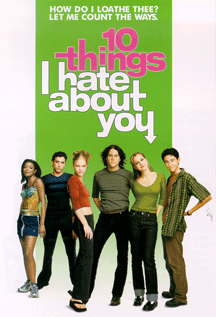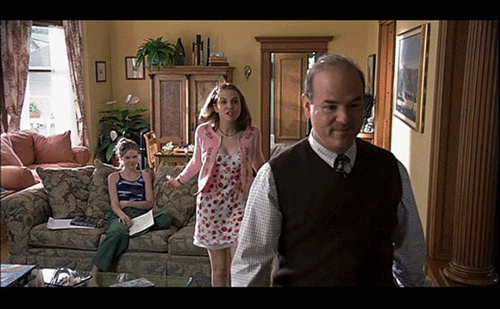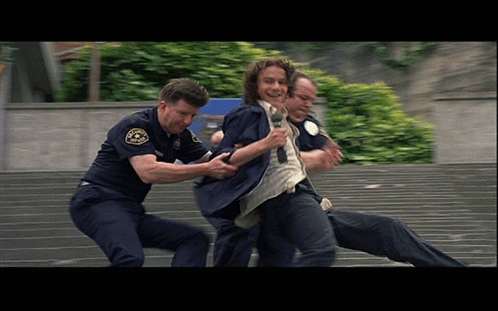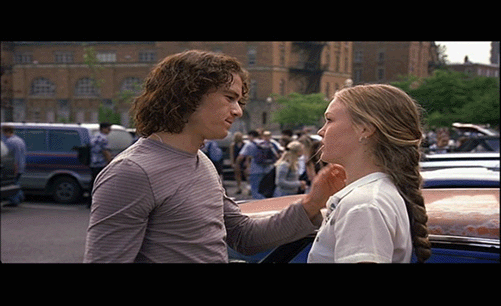
CINEMATIC ALLUSIONS TO LITERARY WORKS
10 THINGS I HATE ABOUT YOU (1999)

The creative team responsible for 10 Things I Hate About You takes aspects of Shakespeare's plot and the dynamic development of his characters to generate a lively contemporary comedy. Like Shakespeare, they celebrate the values of imagination and creativity while they sympathetically laugh at social and romantic pretensions and the rigid patterns of social life.
The movie's heroine, Katarina Stratford (Julia Stiles), like Shakespeare's Katherine learns how to play with alternatives to her righeous feminist independence. She still takes her feminism with the utmost seriousness, and it leads to the triumph of love between companions of equal status and power. The romantic hero, Patrick Verona (equivalent to Shakespeare's character Petruchio, played by Heath Ledger), also like his Shakespearean counterpart learns that his wildly inventive imagination must be constrained by intellectual and emotional honesty if he is to have the rewards associated with a happy relationship with Katarina. Shakespeare's laughter and comic wisdom translate happily from the Renaissance stage-script set in Italy to today's film about learning to love in a contemporary California high school.
Steven S. Urkowitz, Ph.D.
Professor, English
Theatre and Speech Program
 |
Walter Stratford (Larry Miller), Katarina’s father, lays out his arbitrary rules to control his daughters. Shakespeare's equivalent (found in The Taming of the Shrew at lines Act 1. Scene 1.48-51) uses similar ideas to in the very different social expectations that governed wooing and wedding in the late sixteenth century. |
Patrick Verona (Heath Ledger) invents an extravagantly public and risky way to show his affection to Katarina (Julia Stiles). He commandeers the schools public address system and a high school marching band to proclaim his love. In an equivalent daring move, Shakespeare's Petruchio risks social ridicule by appearing at his wedding to Katherine dressed in outlandish clothing |
 |
 |
In the final moments of the film Katarina (Julia Stiles) writes an elegant sonnet in her English class to make public her feelings for Patrick (Heath Ledger). In turn Patrick celebrates Katarina's imagination and her new playfulness with the gift of a beautiful guitar. Shakespeare stages a more elaborate way for the two lovers to show their mutual dedication (in Act 5. Scene 2), but the same lively discord in the play and in the film shows how a rich relationship grows out of reconciling differences with humor and generosity. |
Bibliography
Kantrowitz, Barbara. “A Teen Romance (With No Romance).” The New York Times 23 March 2003: B11.
Holden, Stephen. “It’s Like, You Know, Sonnets and Stuff.” The New York Times 31 March 1999: E11.
Hunter, David. “’10 Things I Hate’.” BPI Entertainment News Wire 31 March 1999.
| Return to main page | Next Movie | |
Copyright © The City College Library www1.ccny.cuny.edu/library |
||